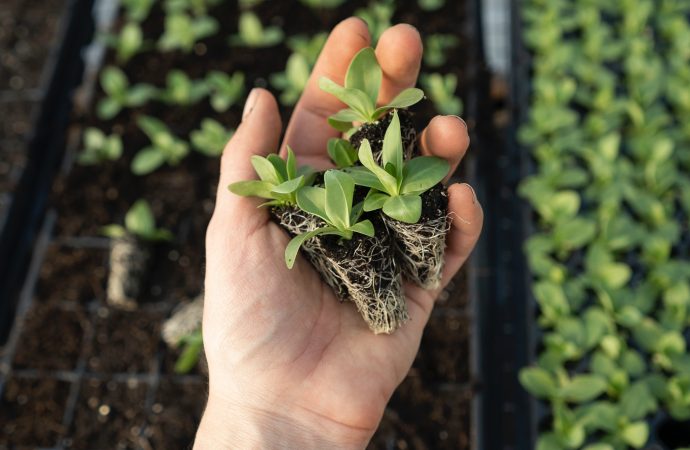Introduction: In an era marked by growing environmental concerns, individuals and communities are seeking ways to make a positive impact. One area where sustainability can be embraced is gardening. Transforming our gardens into eco-friendly havens not only benefits the planet but also creates beautiful spaces that promote biodiversity and a healthy ecosystem. In this article,
Introduction: In an era marked by growing environmental concerns, individuals and communities are seeking ways to make a positive impact. One area where sustainability can be embraced is gardening. Transforming our gardens into eco-friendly havens not only benefits the planet but also creates beautiful spaces that promote biodiversity and a healthy ecosystem. In this article, we will explore some insightful tips and tricks to cultivate sustainable gardens, ensuring that every green thumb contributes to a greener world.
- Embracing Native Plants: The first step towards sustainable gardening is selecting native plant species. Native plants are well-adapted to the local climate and soil conditions, requiring less water, fertilizer, and pesticides. By choosing plants that naturally occur in the area, we can support local wildlife, including birds, bees, and butterflies, which rely on these plants for food and shelter. Moreover, native plants promote biodiversity and preserve the unique character of a region’s natural landscape.
- Water-Wise Practices: Conserving water is crucial for sustainable gardening. Incorporating water-wise practices, such as using drip irrigation systems, collecting rainwater, and mulching, can significantly reduce water consumption. Drip irrigation delivers water directly to plant roots, minimizing evaporation and runoff. Rainwater harvesting captures and stores rainwater for future use, lessening the reliance on freshwater sources. Mulching helps retain soil moisture, suppresses weed growth, and regulates soil temperature.
- Organic Gardening: Transitioning to organic gardening practices eliminates the use of synthetic pesticides, herbicides, and fertilizers, which can harm beneficial insects, soil health, and waterways. Instead, organic gardeners rely on natural alternatives, such as compost, organic fertilizers, and beneficial insects, to maintain plant health. Composting kitchen scraps and yard waste not only reduces landfill waste but also enriches the soil, improving its structure and fertility.
- Encouraging Wildlife: Sustainable gardens embrace biodiversity by attracting and supporting a variety of wildlife. Incorporating bird feeders, bird baths, and native plants that provide food and shelter will entice birds to visit and contribute to pest control. Creating small ponds or water features can invite amphibians and beneficial insects like dragonflies, which help control mosquito populations naturally. By nurturing a balanced ecosystem, sustainable gardens become vibrant habitats for various species.
- Integrated Pest Management: Rather than relying on chemical pesticides, gardeners can adopt Integrated Pest Management (IPM) techniques to manage pests in a sustainable manner. IPM involves identifying and monitoring pests, promoting beneficial insects, employing physical barriers, and using targeted treatments only when necessary. This approach minimizes harm to beneficial insects and avoids chemical pollution, ultimately maintaining a healthy garden ecosystem.
Conclusion: As our understanding of environmental challenges deepens, sustainable gardening practices emerge as a way for individuals to contribute positively. By following these eco-friendly secrets for sustainable gardens, we can create beautiful, thriving spaces while minimizing our ecological footprint. Every small step counts in building a greener future, and nurturing our gardens with care is an excellent place to start. So, let’s put our green thumbs to work and transform our gardens into sustainable oases that benefit both ourselves and the planet we call home.

















Leave a Comment
Your email address will not be published. Required fields are marked with *